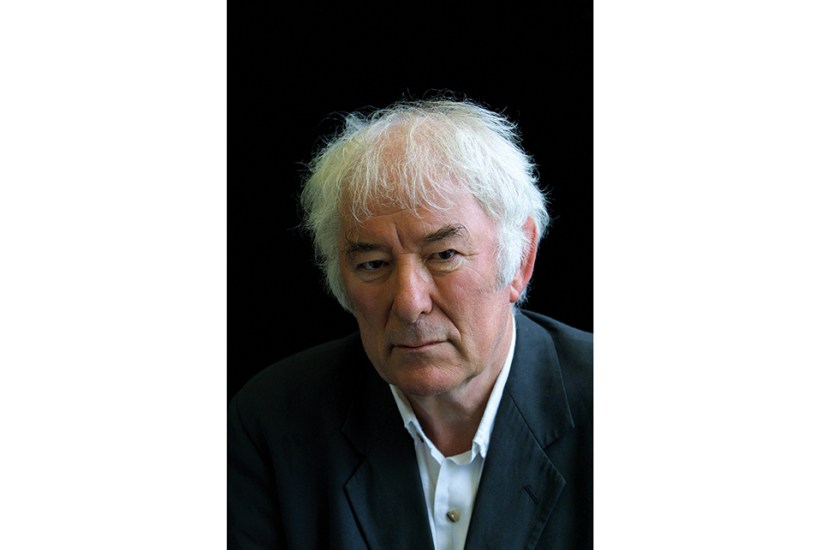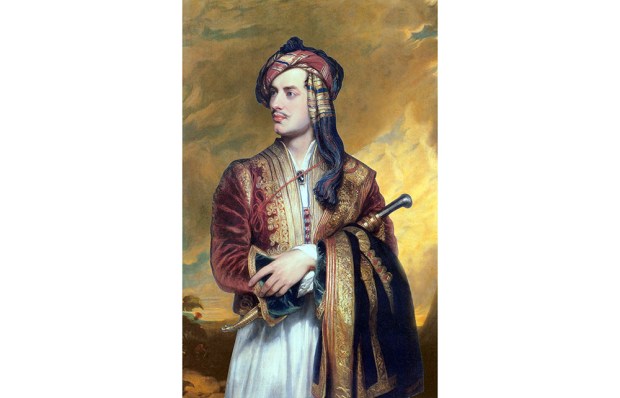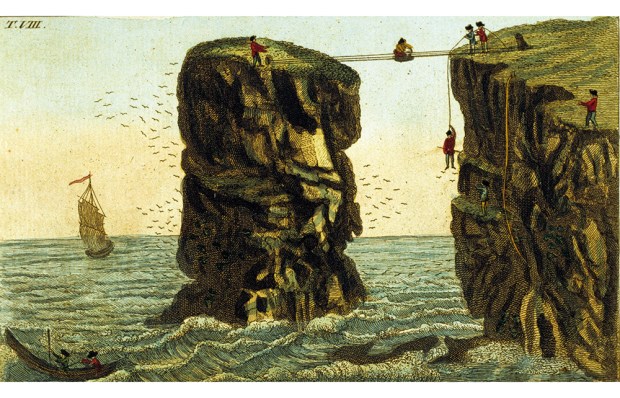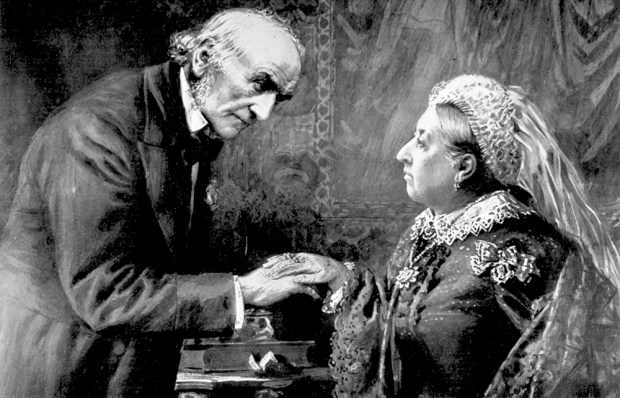Seamus Heaney wrote letters everywhere – waiting for his car to be repaired at a country garage, sitting over a glass or more of Paddy late at night, and above all in aeroplanes, ‘pacing the pages against the pilot as he takes us in to Heathrow or Shannon’, as he wrote to a friend in 1995. So many eloquent missives were dashed off at high altitude that his editor suggests he might have had notepaper printed with the heading ‘EI 117’, the Aer Lingus flight between Dublin and Washington DC. This airborne activity is significant because it indicates two characteristics illuminated by Christopher Reid’s riveting collection: the pressures of life lived at an exceptional pitch of fame, and Heaney’s powerful need to keep faith with friends and fellow poets.
His old friend Karl Miller once asked him, with characteristic suspiciousness: ‘Seamus, are you really as nice as you seem?’ Heaney answered: ‘I have been cursed by a fairly decent set of impulses.’ The niceness and the decency are amply demonstrated over 800-plus pages, but also the extent to which they could turn into a kind of tyranny. ‘In the last two days I have written 32 letters,’ he tells his friend the artist Barrie Cooke in 1985, ‘all of them a weight that was lying on my mind even as the accursed envelopes lay week by week on my desk. The trouble is I have 32 more to write…’
Faced with this amplitude, the principles of selection behind this collection prioritise the professional side of the poet’s life. By agreement, there are no letters to his wife Marie, subject of his magical love poems, or to his three adored children. This inevitably sets aside the vital and central rock on which his private life was built. And there is no juvenilia. The letters begin in 1964, with the 25-year-old poet just about to inaugurate his relationship with Faber, which would publish his first book, Death of a Naturalist, two years later.
Reid tells us that his touchstone was ‘the pleasure principle, conveying the sheer inimitable ebullience of Heaney’s personality. In this he has decisively succeeded, and his editorial approach is hard to fault. Footnotes are economical but crisply authoritative, with occasional ironic shafts. The rich mix of literary references, reflecting Heaney’s boundless reading and capacious memory, is impressively tagged. Reid includes many long letters in rollicking verse to favoured friends. In more serious mode, seven pages are devoted to the celebrated poem ‘Open Letter’ addressed to Andrew Motion and Blake Morrison, where Heaney gently but firmly declares that he should not be included as a ‘British’ poet in their anthology.
The predominant choice of correspondents tells us much – notably his oldest friends, the critic Seamus Deane and the poet Michael Longley; fellow teachers from sojourns at Berkeley and Harvard, Thomas Flanagan and Helen Vendler; and writers with whom he felt an almost freemasonic bond, such as Tom Paulin, Brian Friel, Paul Muldoon, Czeslaw Milosz, Ted Hughes, Bernard O’Donoghue and the Irish poet Dennis O’Driscoll, who persuaded him to collaborate on the extraordinary collection of in-depth interviews about his creative life, published as Stepping Stones.
Heaney himself said that book was ‘meant to keep biographers at bay’, and it certainly represented his determination to assert a firm grasp of the narrative of his life. This collection shows a similar canniness and sensitivity about commentary that approaches too near his private existence. There are, for instance, sharply minatory instructions to Michael Parker, the author of a perceptive 1993 book on Heaney’s early life and work, ticking him off for invading the family turf in Derry. Nonetheless, much here adds significantly to the picture given in Stepping Stones. The letters from his spells at Berkeley illustrate vividly the freedoms conferred by American academe and Heaney’s ability to wring the most out of new experiences, while a number of agonised and passionate testaments add materially to the constant conundrum of the poet’s role in dark political times.
A fascinating 1975 letter to the novelist John McGahern lays out more frankly than elsewhere Heaney’s reasons for moving south to County Wicklow:
Partly I wanted to be rid of the enervating social footwork entailed in the role of papist-writer-makes-good-and-in-danger-of-co-option-by-Unionist-establishment; partly I felt I was never going to encounter my shallownesses and small possibilities if I stayed swathed in Queens and the swaddling bands of the ‘Belfast literary scene’; partly I enjoyed the grandeur of walking out.
Episodes of depression and writer’s block are indicated in 1997, and again after his stroke in 2006; and amid the high spirits, boundless energy and joie de vivre a darker note sometimes persists – particularly when he feels his muse being elbowed aside by the smiling public man. ‘“Pretending to be myself”, as Larkin puts it, becomes more and more of a test,’ he tells Longley in 2007.
For one of the dominant themes in this book is the overwhelming pressure of literary celebrity, especially after his 1995 Nobel Prize. Not only does Heaney reply, energetically and eloquently, to anyone who sends him a book or poem; he writes at courteous length to an unknown and self-important correspondent who has nagged him about not signing one of his books for her daughter at a reception launching the work of another poet. Sometimes he allows himself a certain testiness, as when he suggests to a clearly histrionic prentice poet that he would do well to calm down and read some Elizabeth Bishop. His own image on an Irish postage stamp in 2004, he remarks elsewhere, ‘will act like one of those old white bread poultices used to work – it’ll draw out all the venom in the literary system of the island’.
But generally he lavishly hands out hosannas and laurel wreaths, based on close reading and suiting the mode to the writer. Such letters must have made a correspondent’s day – unless they were as cantankerous as Derek Mahon, stellar poet and congenitally dyspeptic personality. At the bottom of a 1997 letter where Heaney raves about Mahon’s The Yellow Book (‘note perfect all the way, the opulence of means and melodies, the pleure dans le coeur’), the ungracious recipient scrawled: ‘Pompous ass.’
This says far more about Mahon than Heaney, who was nonetheless more than capable of a wicked stab too (as about McGahern: ‘He’s got too good at what he does’). Frivolous readers like myself will rather regret the instances where the editor has eliminated a frank report of ‘a noisy and boring dinner party’ or ‘an international gathering of poets in Dublin’ – or where a tactful ellipsis smooths over a clearly less-than-charitable opinion of another poet. But as with the omission of family letters, this is the inevitable approach for this moment in time, ten years after Heaney’s sudden death at 74.
Reid was himself the recipient of admiring letters from Heaney, notably for his consummate editing of Ted Hughes’s correspondence: ‘The intensity and abundance,’ Heaney told him in 2007, ‘have tilted scales and changed perspectives.’ This is no less true of his own letters. The one inevitable exception to Reid’s exclusion of family correspondence is the last item – Heaney’s text message to his wife just before his death on a Dublin operating table in August 2013: ‘Noli timere’, ‘Do not be afraid.’ Encountered here, as the envoi to a volume and a life of such riches, it breaks the heart.
Got something to add? Join the discussion and comment below.
Get 10 issues for just $10
Subscribe to The Spectator Australia today for the next 10 magazine issues, plus full online access, for just $10.
You might disagree with half of it, but you’ll enjoy reading all of it. Try your first month for free, then just $2 a week for the remainder of your first year.














Comments
Don't miss out
Join the conversation with other Spectator Australia readers. Subscribe to leave a comment.
SUBSCRIBEAlready a subscriber? Log in